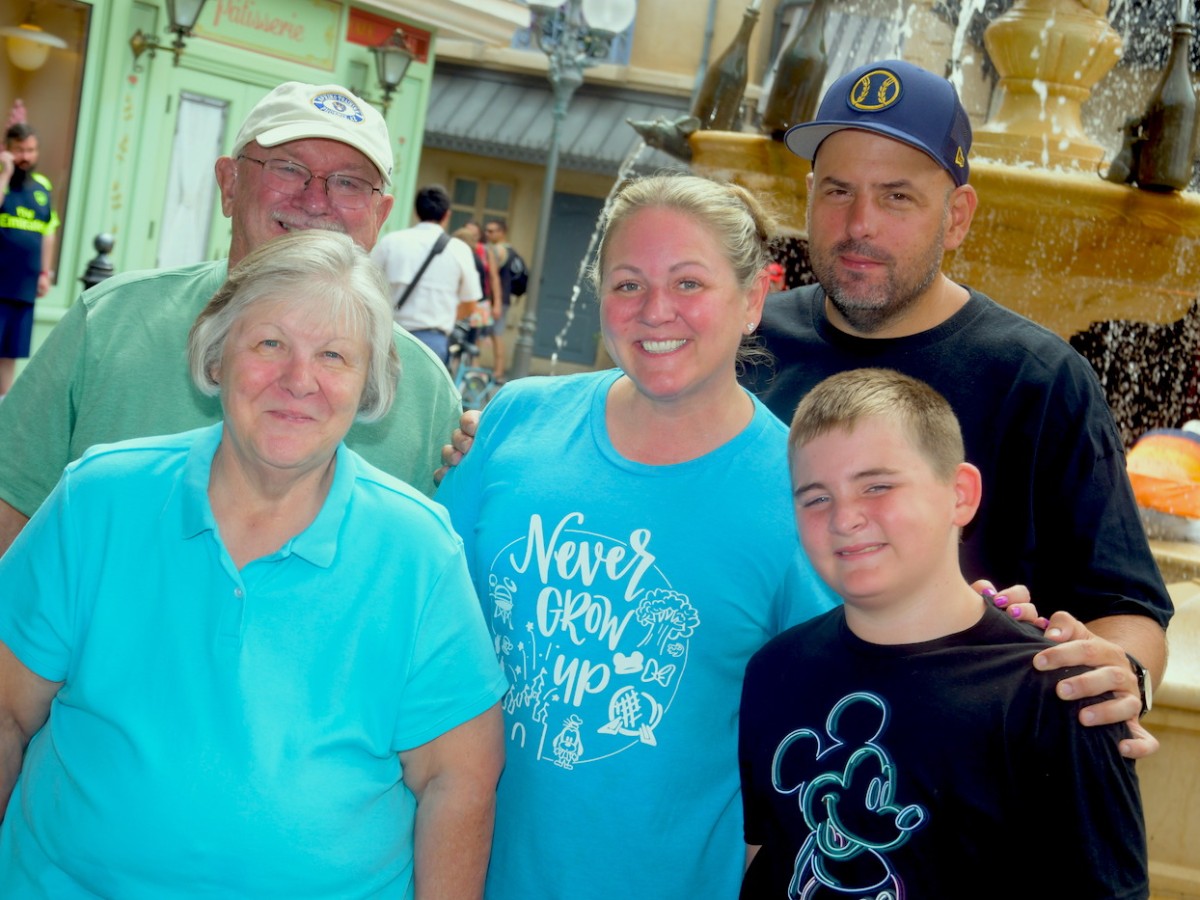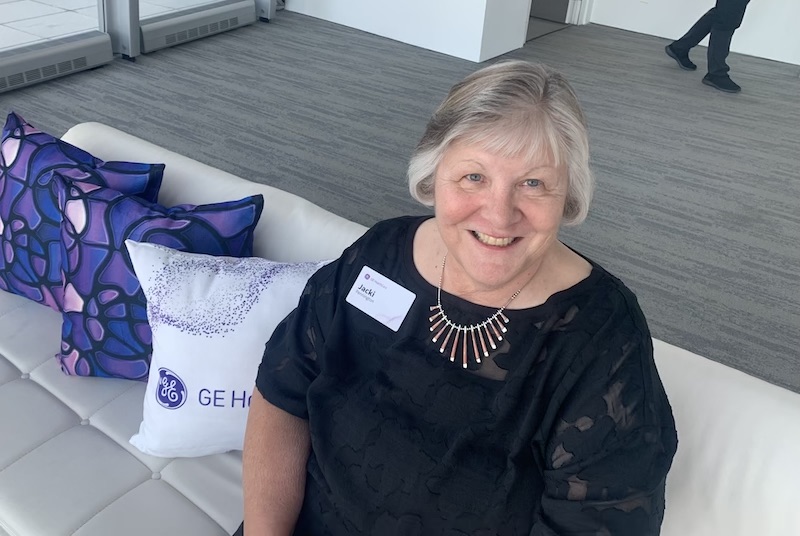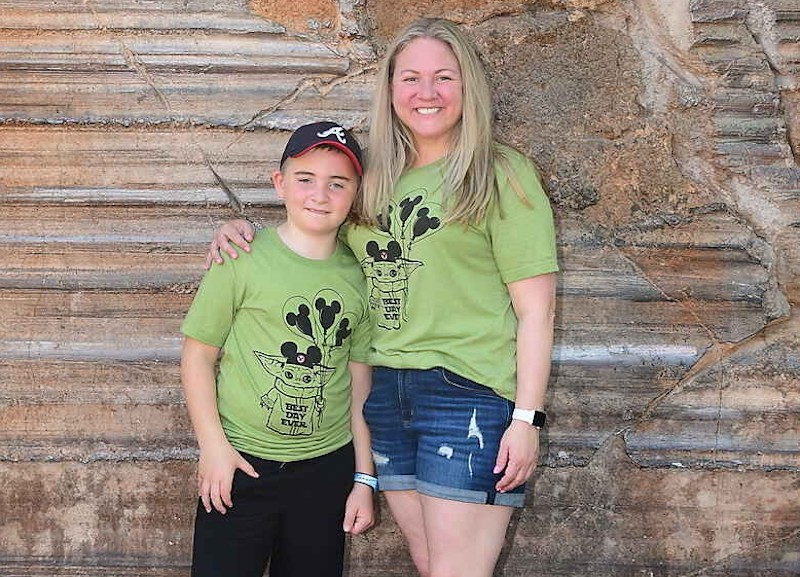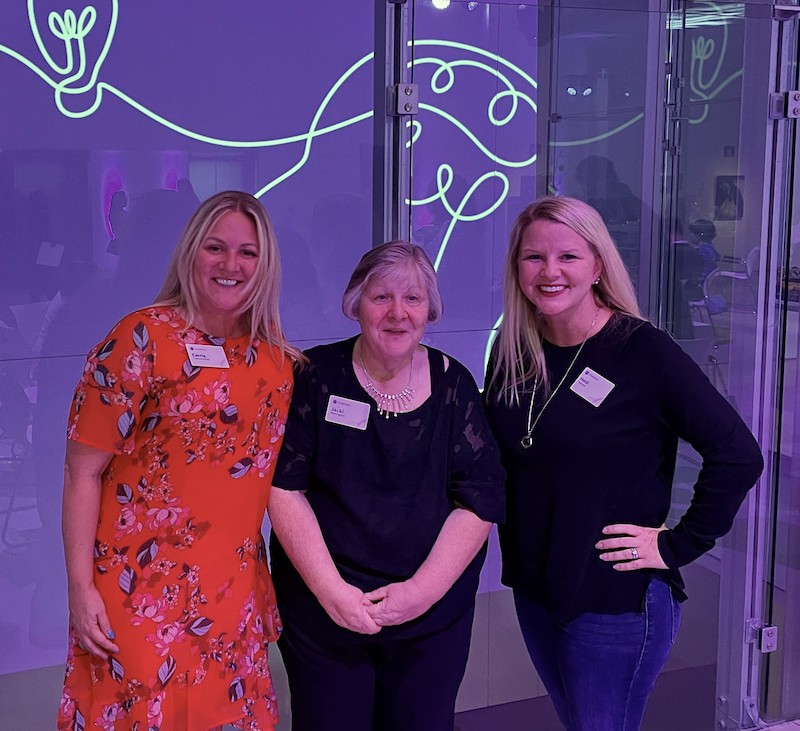When Jacki Pennington of Brookfield, Wisconsin, felt an abnormal warming sensation in her right breast in 2015, she was certain that it would turn out to be breast cancer. She couldn’t feel a lump, but two of her sisters had died of breast cancer decades earlier, in their 40s. Pennington had always suspected a genetic link and assumed that she was next.
A few days later she went for a mammogram. The exam found a small lump that was too small to detect by touch. An ultrasound and biopsy confirmed her suspicions: At age 61, Pennington was diagnosed with stage 2 triple-negative breast cancer.
“You’re scared, you’re angry, but I wasn’t surprised,” she says. “It was almost like I was waiting for it. It was kind of like ‘Oh, finally, my turn in my family.’”
A Mom’s Diagnosis Inspires a Daughter’s Discovery
Jacki received chemotherapy for 12 weeks, followed by a bilateral mastectomy.
“I had this real sense of urgency,” she recalls. “Hopefully I could cure it, rather than end up like my sisters.”
Her physicians recommended genetic testing. Results revealed that Pennington had the BRCA1 gene mutation as well as the CHEK2 gene mutation, both of which increase the risk of breast cancer. BRCA1 also means a higher risk of ovarian cancer, but she was less concerned about that, as she’d had her ovaries removed decades ago.
Jacki shared this upsetting yet potentially lifesaving news with her only living sister, her nieces, and her daughter, Carrie Tereshchenko, the vice president of ultrasound marketing for GE HealthCare, who also lives in Brookfield.
“When Mom got her results back from the genetic testing, she looked at me and she felt so guilty,” Carrie says. “I’m like, ‘This is not your fault. It’s OK. I’ll go get tested.’”
Genetic Testing Confirms a Mutation Before Cancer Strikes
Carrie also knew about their family’s history and had been bracing for a breast cancer diagnosis since adolescence. Most women wait until they’re 40 for annual mammograms; she’d started getting them by age 20.
Once Carrie learned that she might have inherited a breast cancer gene mutation, she went for genetic testing right away. Her mom was still undergoing chemotherapy, and her son, Maks, was 6 years old at the time.
Getting results took less time than she expected.
“Because they had my mom’s DNA strains and could specify where within the strain the gene mutation was, I got my results back in two weeks,” she says. “They didn’t have to go through the whole genotype, meaning my entire genetic makeup — they could just go and look at those certain special areas.”
The results showed Carrie had inherited the BRCA1 mutation. Carrie’s doctor explained to her that she had a 95% chance of getting breast cancer and a 49 percent chance of ovarian cancer. Immediately, she knew that she wanted her breasts and ovaries removed, which wasn’t an easy choice but would give her the best chances of survival.
“I knew I had to do it for my son,” she says. “I’m divorced and my kid needs his mom.”
She had a prophylactic bilateral mastectomy at age 38, then an oophorectomy two years later, because her physicians wanted her to keep her ovaries until age 40.
Before each surgery, Carrie needed imaging exams to check for cancer. Doctors found precancerous cells before her bilateral mastectomy but nothing abnormal before her oophorectomy. During these appointments, she was comforted to see a GE HealthCare LOGIQ P10 ultrasound system in her oncologist’s office.
“I really lived my ultrasound product line and a little bit of our MRIs in this whole story,” she recalls with a chuckle.
Living a More Hopeful Future
Since her bilateral mastectomy in 2015, Jacki has been cancer-free, but she makes sure to go for an annual breast ultrasound. When she does, she always thinks of her daughter, even if Carrie isn’t at the appointment.
“I always asked if they had GE HealthCare equipment,” Pennington says with a little laugh. “If they didn’t, I’d tell them, ‘Well, you’ve got to get the GE HealthCare system.’”
Carrie is glad that her surgeries dramatically reduced her risk of breast and ovarian cancer, even though the experience led to early menopause.
“When you proactively decide to remove the pieces of you that make you a woman — those organs that allowed you to have your son and feed your son — it’s a very emotional and humbling experience,” she says.
Because of her work at GE HealthCare, Tereshchenko already knew that ultrasound exams can bring patients life-altering news. Now she’s lived it.
“We can help improve lives, save lives, allow people the decision-making powers earlier,” she says. “What we’re doing here in terms of precision health and the investments that we make — that’s going to give people their life back.”




